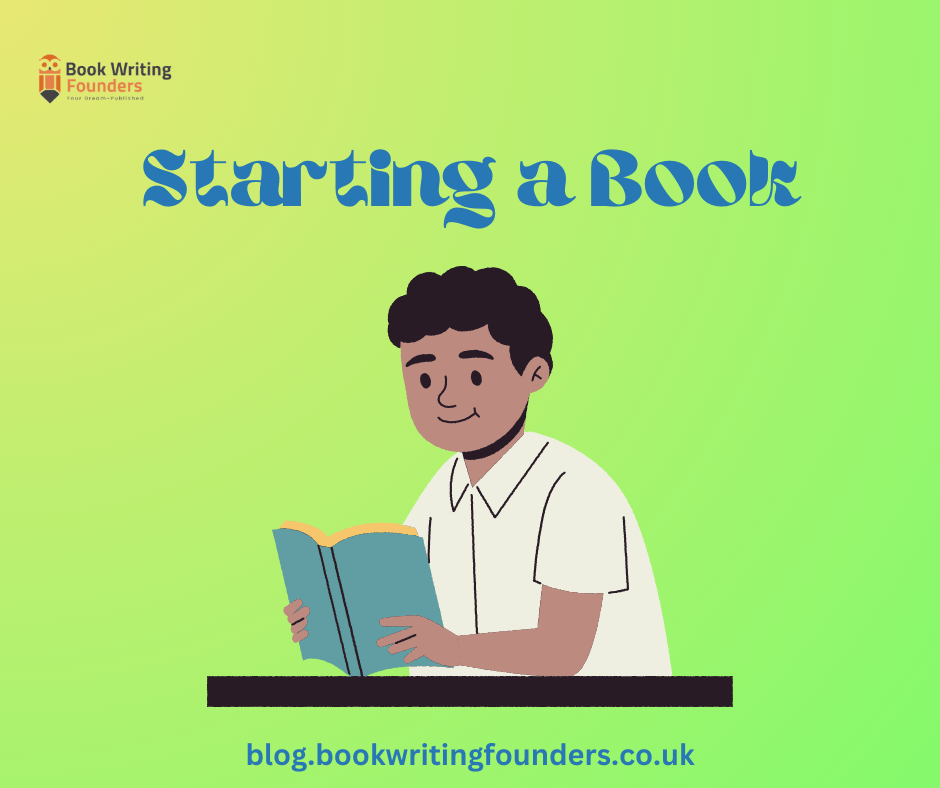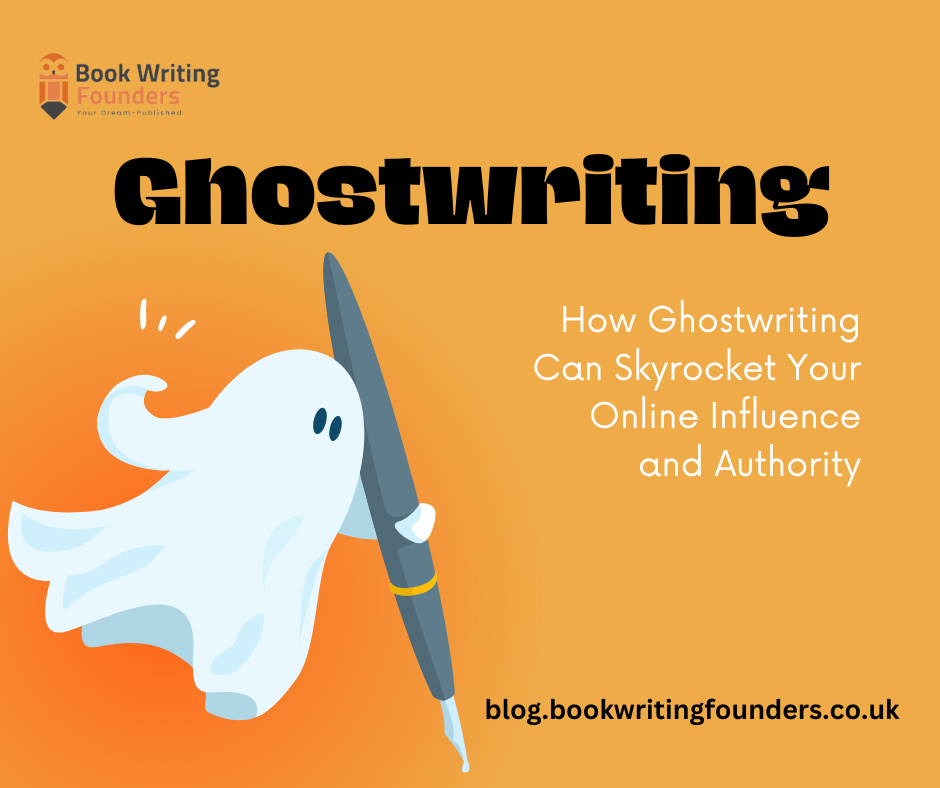
Writing
Writing a book is a lot of work, but it’s also a lot of fun, so Are you ready to share your story with the world? If you are ready to start a book, this blog post is for you! This post will share a proven process for Starting a Book. This process of Starting a Book writing journey has helped many authors to write and publish their books.
We will tell you how you can start writing your book from A-Z. to make things easier for you to understand, we have divided the process into 2 phases. So, we hope that by the end of this guide, you will certainly be able to write a good book.
However, if you don’t possess the art of writing yourself or are still a beginner book writer, you can always hire a ghostwriter to help you out. However, knowing the writing process is really important no matter who writes on your behalf as a writer.
Phase 1
The first phase is of Starting a Book, where we will discuss what you need to do before you start to write a book.
Set up a place where Starting a Book writing process can be easy
Don’t use the same space for writing and anything else if you can help it. If you have to clear off the kitchen table every time you want to write, that will hinder your writing process.
Where you write shouldn’t be used for anything else. Leave your work area set up and ready to go so it’s ready when you are.
Your space doesn’t have to be perfect, but it should help you the most. Try to make it pleasant so that you wouldn’t want to run away from it or you don’t feel drained there but rather feel productive.
Learn how you work best
We know writers who can work and be Starting a Book in a coffee shop even though people are talking and dishes are banging around. Just figure out how you work best, and if you need peace to write, go somewhere else.
You probably already know when you’re most creative, and if you don’t, you can try things out to find out. Try to write at that time.
Plan a time every day to work on your book
Being consistent makes it easy to be creative when Starting a Book. You’ll finish writing a book if you give yourself a daily goal as mentioned in our post about how to write a book about your life. You’ll finish writing a book if you give yourself a daily goal. You can take a day off, but you should plan that.
Don’t miss a deadline, and don’t let yourself off so easily. By giving yourself a daily goal and a set time to write, you won’t have to think about when to write after Starting a Book. When you need to write, you need to write.
Find out your target audience
To be a good writer, you must pick a story and figure out how and who to tell it.
First, you must decide what story to tell when Starting a Book. Many great book ideas come from thinking about what interests you.
Once you’ve chosen your topic, getting to know your target audience will help you write a book that will reach the people you want to read it.
Knowing your audience is important if you want to keep making great work that people can’t wait to get their hands on.
This may be the most important step in the whole process of writing a book. When you write a book, the story is never about you. It’s about what you have to offer the people you want to help.
Which genre do you want to write in, which books in that genre do you want to be compared to, and who your ideal reader might be. Once you’ve answered these questions in a way that is unique to you, you can start getting information from people in your network, similar to what’s discussed in our article on what is ghostwriting and how does ghostwriting work.
To figure out who your ideal reader is, you should first think about the following:
- Which genre do you want to write in
- Which books in that genre do you want to be compared to
- Who your ideal reader might be
Once you’ve answered these questions in a way that is unique to you, you can start getting information from people in your network.
There is a chance that the people in your personal or business network are similar to those you want to reach.
Overall, a writer’s job is to know who they’re writing for. It takes work, but that work will make your book great.
Phase 2
Pick The Right Book Subject, as detailed in our article on what is ghostwriting all about this writing style. The second phase includes the things that you need to do to write a good book after Starting a Book, and it is mentioned below:
Pick the Right Book Subject
Book writing founders UK experts tip how to write a book is picking a good topic.
Once you start a Book and find out who you want to write for, it’s time to choose a topic.
Your book’s topic must be different enough to make it stand out. However, it should be broad enough to appeal to more people.
Think about writing a book about how to sell on social media. It’s broad enough for people to understand, but you need to say it from a different angle.
Your book could be about a specific idea about why you should only post on social media on Tuesdays. Now, this is a very unique way of thinking.
And most importantly, it doesn’t matter if you choose the right book topic for your readers if you don’t care about it yourself.
Writing a book about something you care about is easier and more natural. Moreover, it’s also more interesting for your readers because they can tell from just a few lines how involved you are in the subject.
Create your outline
Now once you have chosen a good book or topic, it is time to create a good outline. Creating an outline is excellent because it will help you figure out what you want to write. It is sort of like a thought-processing and brainstorming activity.
Moreover, creating an outline is also very important because an agent or editor needs to know what you plan to say. Most agents and publishers want to see a full manuscript for fiction.
It is because you have to show that you can come up with a great idea and start and finish. You have to have enough setups and payoffs to get you through the whole thing.
Research thoroughly
When you are Starting a Book, you should be an expert on your subject. But don’t show off your research, especially not in a novel. The story is the main dish, so think of your study as seasoning to help your story sound real, as discussed in our article on what is ghostwriting and how does ghostwriting work. You shouldn’t just write from your own experience; you should also know everything there is to know about the other experts in your area. That needs a lot of study.
Believe it or not, study and research when Starting a Book is just as important in fiction as it is in nonfiction. This is because for fiction to work, it needs to be believable. Readers will notice if you get a fact wrong, you’ll lose trustworthiness. Being specific adds to your trustworthiness.
But don’t show off your research, especially not in a novel. The story is the main dish, so think of your study as seasoning to help your story sound real. It’s the spice that makes it seem more real.
For example, if you read the books of Bridgerton by Julia Quinn, you will see how she has managed to write a completely independent story but made it sound so real. It is because she researched the proper etiquettes and mannerisms of the periods it was set in.
Cut your idea up into small parts
People have said you can only eat an elephant one bite at a time.
Your book could have 400 or even 500 written pages. Considering all of that at once is too much to think about.
So, think of the task as several small parts: words, sentences, paragraphs, pages, and chapters. What at first may seem like slow progress, especially when looking at the whole text. But if you keep at it a bit, you’ll see pages adding up after a few months.
Write each chapter separately
You now have a plan for your book’s chapters, so All that’s left to do for Starting a Book is to sit down and write it! Some ways are simpler, faster, and more likely to work than others, as explained in our article on how to become a ghostwriter in 4 easy steps.
It’s not always right or wrong to write your book in a certain way. But some ways are simpler, faster, and more likely to work than others.
But if you are curious about the process, you may follow the guideline below.
- Make a mini-BookMap for that chapter, considering everything you know about the topic.
- Sort out your thoughts and outline your BookMap.
- Use the plan you just made to write or read the chapter.
- Do this repeatedly, one part at a time, until your book is done.
Don’t edit things as you write
You write a page or two quickly when you sit down to write. Then you stop and look over what you just wrote. And instead of going on, you go back to those first few pages and start making changes to them.
In your mind, you’re just making small changes to your work. Before you move on, you want everything to be just right.
But the truth is that you’ve just stopped moving forward. The next hour is spent trying to make those pages PERFECT. And when you can’t get it right, you get upset and stop writing.
When something like this happens, writing anything else is usually very hard. Why? Because writing and rewriting use different parts of your brain. So if you let yourself get into a more critical or judgmental frame of mind, it’s almost impossible to start creating again.
Because of this, you shouldn’t edit your work while you’re still writing, even though editing is an important skill.
You shouldn’t start rewriting your book until you’ve written the first draft.
Write an initial draft
After Starting a Book, It’s scary to write the first draft of a book. You look at the empty page before you and wonder how you’ll fill it and the hundreds of others that will follow.
Don’t think too much.
Find a quiet place to write for an hour and do everything you can to get the words out of your head and onto the page.
Some people call the first draft the vomit draft (yuck!) or the rough draft because you just need to get it out. Don’t stop to edit yourself; look over what you’ve written, or see if what you’re saying makes sense. In the first draft, you can also work on and improve your writing habit.
Write the next version of the draft
The best way to write is to rewrite.
Fix your book’s big problems before making small changes, like changing the title of a chapter or editing a line. What does this look like? When revising, ask yourself: Does my opening make the reader want to know more?
- Have I written any stories?
- How can I make my points stronger?
- How can I give my work an original point of view?
- Does each page of my writing use at least one of the five senses?
- Which part of this chapter is the least strong? Can I trim it?
- Have I removed as many extra words and adjectives as possible from my work?
- Did I get rid of every cliche?
You might have to write, look over, edit, and rewrite your book more than once before you’re happy with it. Take it one line, paragraph, and chapter at a time.
Hire an Editor
You might be able to write the first, second, or even third draft by yourself when Starting a Book, but you will need help. When you’re either Starting a Book or in the middle of a writing job, it’s hard to see research holes, bad stories etc.
When you run into problems, you can waste a lot of time figuring out how to solve them. Editors are trained professionals who make papers into something that readers will enjoy.
A good editor will help you improve your writing skills and write a better book. They will also help you finish rewriting your book faster.
Format your work the right way
Formatting is important whether you sell your book through a traditional publisher or on your own.
Why?
Because bad formatting makes you look like an amateur.
Readers and agents expect book manuscripts to be in a certain style, and if you don’t follow their rules, you’re setting yourself up to fail.
Tips for putting together your book:
- Use a 12-point type
- Use a font with serifs; Times Roman is the most popular.
- Double-space your text
- Don’t leave extra room between paragraphs
- One space between each sentence
- Put a half-inch space between each line. Use a tab instead of several spaces.
- The text shouldn’t be centered; it should be flush left and ragged right.
- If you put a line between paragraphs to show a change of place or time, put a dingbat (like ***) in the middle of the line.
- Only words in black on a white background
- Top, bottom, and side borders of one inch (this is how Word works by default)
- Make a headline with the title, your last name, and the page number. Except for the title page, the header should be on every page.
Publish the book
If you learn how to write a book, your idea could become a best-seller. When you’re done writing, it’s time to show it to people.
In the past, publishing a book meant getting a publishing company to look at your work and decide that they liked it enough to put it under their name.
Of course, this is much easier to say than to do. Even the most famous authors, like J.K. Rowling, Dr. Seuss, and Luisa May Alcott, faced many rejections. But now you also have the option to self-publish.
Conclusion
Starting a Book wiring project can be very hard, but that doesn’t mean it can’t be done.
You can make it work.
Take it step by step and promise to stay on track. And who knows, maybe by this time next year, you’ll have a copy of your book that has been printed.





